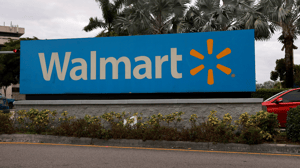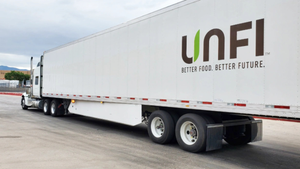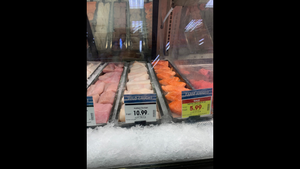SpartanNash: Labor Costs Offset Inflation's Sales Boost
In Q3 earnings call, CEO Tony Sarsam says he sees a net headwind driven by rising labor outlay. Retail comp sales rose 3.1% for the retailer and wholesaler in the company's third fiscal quarter, but labor shortages and higher costs especially in the supply chain make for a net headwind, CEO Tony Sarsam says.

Grand Rapids, Mich.-based SpartanNash reported that comp sales in its retail division rose 3.1% in the third fiscal quarter of 2021 and were up 13.5% on a two-year stack.
That performance represented continued improvement for the company's retail segment over the course of the year: Comp sales had declined 2.7% in SpartanNash's second fiscal quarter and were down 7% year over year in the first quarter.
Consistent retail execution, an inflationary price environment and a continued trend toward dining at home all contributed to net retail sales growth of 2.0% to $608.7 million in the third quarter, which ended Oct. 9, SpartanNash CFO Jason Monaco said in an earnings call on Thursday. President and CEO Tony Sarsam said that retail fresh and pharmacy departments had had an especially strong showing in the quarter. Companywide, SpartanNash's net sales were up 0.6% year over year to $2.07 billion.
But significant labor and supply-chain pressures—notably, sourcing both labor and product—are serving to offset sales gains, company President and CEO Tony Sarsam suggested. Labor "is a net headwind," Sarsam said on the call with investors.
"It’s been an enormously difficult labor environment," he said, adding that "the net effect is negative growth for our business." SpartanNash has raised wages and another pay increase is happening this fall, Sarsam said—helping yield an improving flow of applicants. Still, hiring and retention are not yet where the company wants them to be, and "we are not anywhere close to closing the gap" in filling open jobs, he said.
Beyond wages, SpartanNash continues to invest in benefits, training for supervisors, employee engagement and recognition programs—all meant to "make people feel like they’ve got a home when they come to SpartanNash," Sarsam said.
On the supply-chain front, falling fill rates from vendors have challenged the company's food-distribution business, Sarsam and Monaco indicated, although net sales for food distribution were up 1.9% to $1.03 billion for the quarter (driven by growth from select customers and inflation's favorable impact). Without naming names, Sarsam said that some top suppliers' order fulfillment declined by more than 20%.
"Unfortunately we do not expect these pressures [in labor and supply chains] to ease up any time soon," Sarsam said, adding that he sees holiday-related product shortages "definitely" occurring in the weeks ahead and wage hikes continuing into at least the first part of 2022.
Investments in operational efficiency throughout the supply chain, including in technologies that will give warehouse teams better real-time visibility into their productivity, will help the company ride through these challenges and position it for "sustainable and profitable growth over the long term," Sarsam stated in a news release.
SpartanNash's military segment saw sales continue to slide, falling 4.1% over the year to $433.2 million. Lower export sales—a result of cycling last year's elevated demand—as well as international port delays and declining volumes at domestic commissaries contributed to the sales decrease, the company noted. The military segment's reported operating loss was $4 million, vs. $2.5 million in the year-ago quarter. On a two-year stack, military sales are down 13.2%.
Despite the assorted headwinds that the company—like the rest of the retail and distribution industry, Sarsam pointed out—is facing, SpartanNash's overall outlook is positive, and the company raised and narrowed its retail comp sales expectations for the year from a decline of 5% to 3% to a decline of 2% to 1%. SpartanNash now expects adjusted EBITDA to range from $205 to $210 million.
"We are proud of these solid third-quarter results," Sarsam said in the news release. "Across our organization, we have shown great resolve and discipline, helping to deliver strong performance."
Read more about:
SpartanNashAbout the Author
You May Also Like






